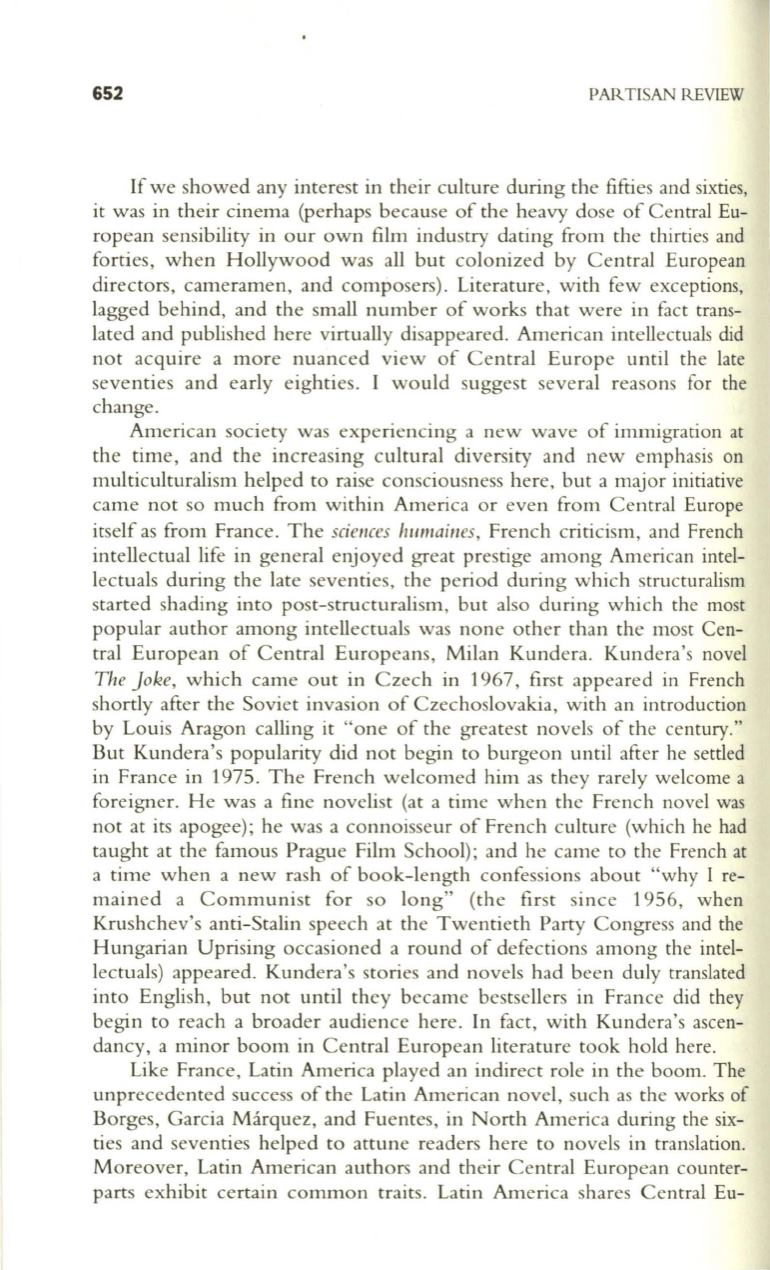
652
PARTrSAN REVIEW
If we showed any interest in their culture during the fifties and sixties,
it was in their cinema (perhaps because of the heavy dose of Central Eu–
ropean sensibility in our own film industry dating from the thirties and
forties, when Hollywood was all but colonized by Central European
directors, cameramen, and composers). Literature, with few exceptions,
lagged behind, and the small number of works that were in fact trans–
lated and published here virtually disappeared. American intellectuals did
not acquire a more nuanced view of Central Europe until the late
seventies and early eighties. I would suggest several reasons for the
change.
American society was experiencing a new wave of immigration at
the time, and the increasing cultural diversity and new emphasis on
multiculturalism helped to raise consciousness here, but a major initiative
came not so much from within America or even from Central Europe
itself as from France. The
sciences /llImailleS,
French criticism, and French
intellectual life in general enjoyed great prestige among American intel–
lectuals during the late seventies, the period during which structuralism
started shading into post-structuralism, but also during which the most
popular author among intellectuals was none other than the most Cen–
tral European of Central Europeans, Milan Kundera. Kundera's novel
The Joke,
which came out in Czech in 1967, first appeared in French
shortly after the Soviet invasion of Czechoslovakia, with an introduction
by Louis Aragon calling it "one of the greatest novels of the century."
But Kundera's popularity did not begin to burgeon until after he settled
in France in 1975. The French welcomed him as they rarely welcome a
foreigner. He was a fine novelist (at a time when the French novel was
not at its apogee); he was a connoisseur of French culture (which he had
taught at the famous Prague Film School); and he came to the French at
a time when a new rash of book-length confessions about "why I re–
mained a Communist for so long" (the first since 1956, when
Krushchev's anti- Stalin speech at the Twentieth Party Congress and the
Hungarian Uprising occasioned a round of defections among the intel–
lectuals) appeared. Kundera's stories and novels had been duly translated
into English , but not until they became bestsellers in France did they
begin to reach a broader audience here . In fact, with Kundera's ascen–
dancy, a minor boom in Central European literature took hold here.
Like France, Latin America played an indirect role in the boom. The
unprecedented success of the Latin American novel , such as the works of
Borges, Garcia Marquez, and Fuentes, in North America during the six–
ties and seventies helped to attune readers here to novels in translation.
Moreover, Latin American authors and their Central European counter–
parts exhibit certain common traits. Latin America shares Central Eu-


